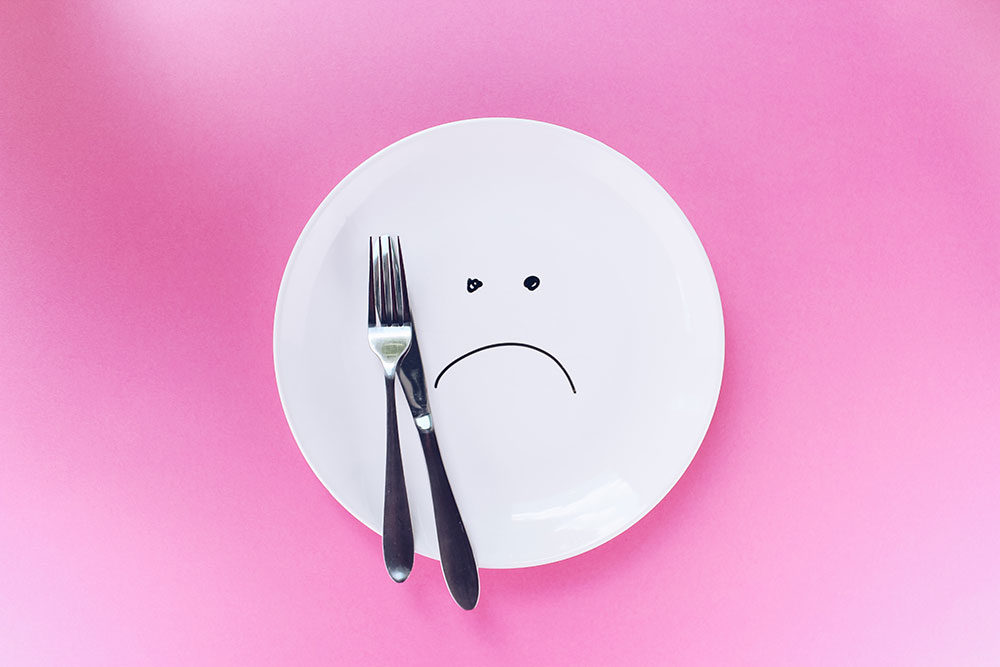Part 1:
Nutrient Malabsorption Due To Low HCL

If you are eating nutritious food, staying hydrated, getting sleep and decently managing your stress but still feel ‘HANGRY’ all the time, this article may help to explain why.
I used to think that the reason I was always hungry was because I had a super fast metabolism and just ‘burned off’ food quickly. I would need to eat every two hours, and when I say ‘need’, I mean my thinking would completely shut off and my emotions would be on the brink of a melt down. I would feel dizzy, shaky, pissed off and basically drop everything I was doing to fulfil this urgency for food. Eventually, my boyfriend figured out to always carry around snacks so I wouldn’t turn into ‘Joe Pesci’ - his words.
This was just the way life went for a long time, but I slowly started to connect the dots that I wasn’t absorbing nutrients properly, so no matter how healthy my diet was, I was getting very little benefit from the food I ate. After a lot of time spent experimenting, I landed on some diet and lifestyle tweaks that made all the difference.
If you can relate to the symptoms above, here are some reasons that Nutrient Malabsorption may be making you HANGRY all the time.
Nutrient Malabsorption Could Be Due To:
Constant hunger can be a symptom of nutrient malabsorption, which in the long run, can lead to more severe health issues, so let's get a handle on it now!

Nutrient Malabsorption Due to Low HCL
Stomach acid (HCL) is responsible for breaking down food in your stomach. Without the food being broken down into small, absorbable particles, you simply can’t assimilate the nutrients from what you are eating. This can make you feel like you’re starving an hour later, which in a sense, you are. You are starving your cells of nutrients.
Food is passing through without really being helpful. In fact, small particles of food that are not broken down can pass into the bloodstream, causing toxicity and inflammation (bloating) that will cause future issues to arise. Sometimes it can feel like we’re super full just because we’re bloated! Then, two hours later, we’re shaking and hangry again.
Stomach discomfort, gas, bloating or burping after eating a meal, especially if it contains protein, can indicate low HCL levels.

What Causes Low HCL?
One of the biggest culprits when it comes to low stomach acid, is stress. HCL will only be released when the body is in a relaxed state. Tricky tricky! How many meals have we had on the run, in the car, while walking or even while thinking about something that’s stressing us out? Stress eating, anyone?
Drinking too much liquid during meals, insufficient nutrient intake, aging, and taking medications (ironically, especially antacids), will also contribute to low stomach acid.
Low HCL is rampant in the world we live in right now due to generally poor diets and high stress. So how can we improve this?
How Do We Increase HCL?
- Stress management, such as yoga, meditation, visualization, breath work, journal writing, creative activities. Making sure to be in a relaxed state while eating will help the digestive system to work properly. Taking three big deep, cleansing breaths before eating can put you in a more relaxed state.
- 1 tsp of apple cider vinegar with 4-6 oz of water about ten minutes before meals.
- If you don’t like apple cider vinegar, you can replace it with fresh lemon juice and water or bitters and water in the same ratios.
- Chew foods thoroughly. This is the first important step of good digestion.
- Ginger tea between meals will encourage HCL production. Or if you’re hard core, chew bits of ginger root instead.
- Eat whole foods and avoid processed foods.
- HCL supplements are available if the above methods don’t seem to be enough.
Does it sound like you may have low HCL? Talk to a trusted health and wellness professional about your specific case.